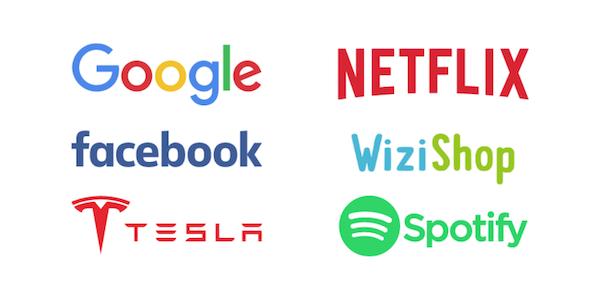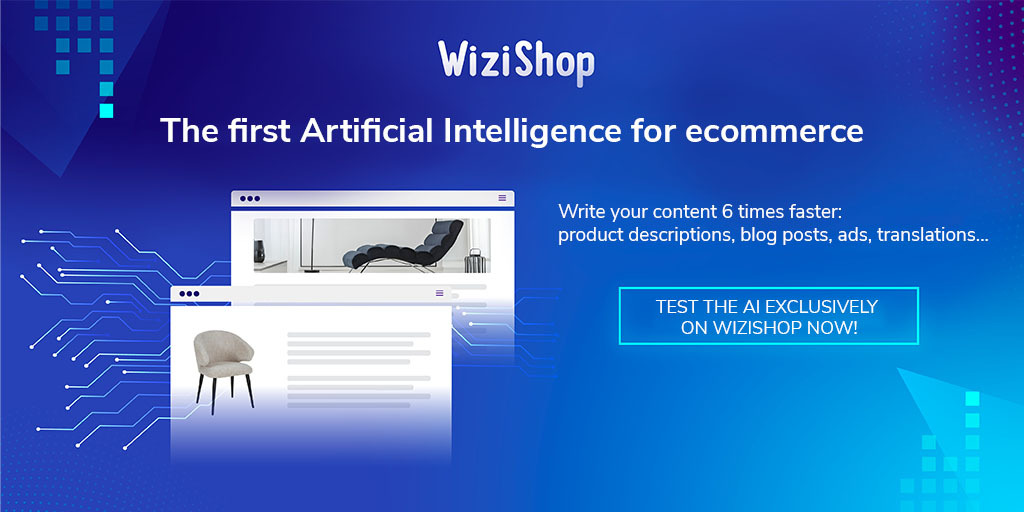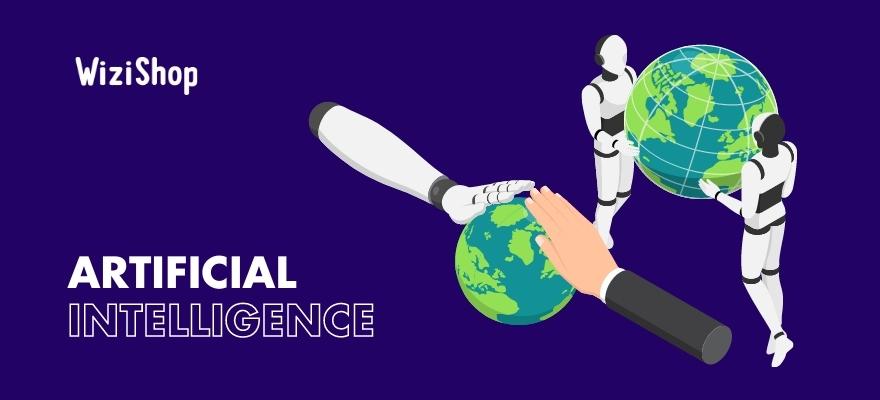Filmmakers, scientists, architects, artists... For several decades, the concept of artificial intelligence has brought its share of imagination, representations, and more or less positive images around this smart technology.
Today, the code has changed, and the definition of AI has never been so current: artificial intelligence is part of our daily life, whether at work or at home, and it’s present in many fields that we almost never see. The strength of artificial intelligence is its power to become indispensable in the lives of those who use it.
In this guide, we won’t answer the eternal question of morality and the merits of the existence of artificial intelligence, but rather all the questions that can be asked to try to give simple and concrete answers around this concept that has been much talked about. And you’ll see that AI is not (only) the enemy robot that comes to conquer the planet…
Artificial intelligence: definition and characteristics
According to the 2020 Fortune Business Insights report, the global AI market is expected to reach $267 billion by 2027 compared to $27.23 billion in 2019.
What do we mean by artificial intelligence?
Artificial intelligence, also known by its acronym AI, refers to the set of machines as well as operating systems configured by humans to reproduce or accompany human actions. Moreover, artificial intelligence is defined by its ability to learn and improve by performing repeated tasks. The "machine learning" degree of artificial intelligence implies that the more information the system integrates, the more it’ll be able to improve based on the data received.
Several types of artificial intelligence exist according to different uses:
- Recommendations: recommendations on platforms, such as music or video streaming platforms, to suggest selections that might appeal to the user.
- Assistants: assistants that produce data automatically, such as smart writing.
- Software: software, such as chatbots, which automatically respond to a request from a customer or user according to specific keywords following the initial human configuration.
Unlike an application or a classic software program that’ll respond to actions given by humans, artificial intelligence will carry out a process of reflection and learning from the information received.
These tools are present today all around people in order to improve the realization of their daily activities or to fluidify their actions to save time and increase performance. Unlike the image created by artists, writers, or filmmakers, artificial intelligence isn’t intended to replace the usefulness of people on Earth, but to support their daily life to improve it and allow them to exploit 100% of their human capacities.
What is the purpose of artificial intelligence?
Artificial intelligence was originally designed to be able to reproduce a human pattern in order to make good decisions. For example, in a game of checkers or simple tic-tac-toe, there are tens of thousands of possible actions that could lead to a draw. All these possibilities and probabilities would take years for the human brain to consider, whereas thanks to artificial intelligence, the calculation is simpler, faster for decision making.
It’s based on this element that artificial intelligence was initially created, to help people in their mental processes so that they can make good decisions in their daily lives. Following this conceptual creation, engineers and scientists have developed new branches of artificial intelligence such as machine learning or deep learning that go even further in the configuration of AI.
Artificial intelligence executes mathematical formulas configured by humans, without necessarily learning from the data collected, whereas machine learning is configured to consider all the data recorded during the process of use. Machine learning or deep learning are subcategories of artificial intelligence, which represents the main category of this concept.
Thus, the goals of artificial intelligence are multiple, because they depend on how we plan to use it. Weak or strong artificial intelligence, organization of the memory of a connected device, management of the traffic of one's website, whatever the sector of activity, whether it’s to solve a problem, to make the best choice, or to discover the innovations that would be likely to please us... The goal of artificial intelligence is to save human beings time to allow them to take advantage of their full potential in most of their daily activities.
How was artificial intelligence born?
The human brain has always tried to understand how to help human action through machines.
However, the arrival of artificial intelligence, as it’s known today, came much later. Looking at the history of artificial intelligence, its birth is considered to have been in 1943 in a document that presents the very first mathematical model of the creation of a neural network, "A Logical Calculus of Ideas Immanent in Nervous Activity."
Then, the creation of AI machines arrived from the 1950s, with notably the first computer, a neural network created by Marvin Minsky and Dean Edmonds. At the same time, Alan Turing created the Turing Test, which is still used today. In 1952, the machine learned to play chess, thanks to the very first software created by Arthur Samuel.
It was in 1956 that the expression of artificial intelligence was born at the "Dartmouth Summer Research Project on Artificial Intelligence" conference. This conference is considered by many scientists and historians as the starting point of artificial intelligence in the world.
It was in 1959 that machine learning appeared thanks to Arthur Samuel who worked at IBM.
Then, the focus was largely on the development of home computers, leaving aside the AI project which was not yet the priority in computing, facing numerous obstacles.
After various aborted projects, the real first steps of artificial intelligence took place in the 1980's, with the technological advances and the investments of different countries around this developing industry.
In 1997, machine learning reached a memorable milestone: it was the first instance that a software program beat the world chess champion, Garry Kasparov.
In the late 2000s and early 2010s, artificial intelligence became the main issue in technological creations. That's when AI entered the daily lives of billions of people, along with the release of the first smartphones.
How does artificial intelligence work?
AI is basically configured by humans to perform certain actions repeatedly. In addition, artificial intelligence is capable of assimilating large-scale information, hundreds of data points that allow it to learn and function optimally. Obviously, for this to work, artificial intelligence needs the human hand to be able to be put in a situation and to be able to follow the parameters that’ll allow it to extract the data in the best way.
Artificial intelligence will respond to given actions, pre-configured in its operating system by the human who created it. Once in a situation, the artificial intelligence is going to feed on the dozens of information it receives around it to analyze the actions it should or shouldn’t take. Thanks to this, artificial intelligence will make a decision about the perceived scenario.
At the beginning of artificial intelligence, the machine wasn’t necessarily in a learning approach, but simply imagined to perform iterative tasks, as taught by the human who gave it form. Today, through various algorithms and other data analysis, the machine is able to learn to return the best possible choices to the human.
To learn more, read our full article on how artificial intelligence works.
Where is AI in everyday life?
If you have connected devices like a current computer, smartphone, connected watch, tablet, or other smart objects like voice assistants in your home, know that artificial intelligence is everywhere, but at different levels.
The first artificial intelligence you’ll encounter is Google search or image recognition. When you type your query in the search bar, and Google suggests other searches or similar queries, then you’ll be confronted with artificial intelligence, not to mention the results that are proposed once you click on "enter."
Artificial intelligence can also be found on streaming platforms, whether you want to watch a movie on Netflix or listen to a podcast on Spotify: the applications offer personalized recommendations based on your listening habits. This algorithm is fed by your choices, as well as your habits in terms of style of music or video, in order to propose songs or series that you might like.
In addition, in all social networks there are recommendation algorithms: these elements are based on artificial intelligence, because, according to you, your viewing history, likes, shares, comments, and followed accounts, the platform will suggest you posts that would be likely to attract your attention.
Artificial intelligence is also technologies in the making that are already present today, such as autonomous driving in cars and the fact that you no longer need to control the car so that it can move forward in complete safety.
Finally, i's also ecommerce solutions like WiziShop that integrate, within their administration area, artificial intelligence tools to generate AI texts, advertisements, and many other things to facilitate e-merchants’ lives!
We’re surrounded by artificial intelligence at various levels, depending on our daily needs. In the workplace, this can mean automating certain undertakings or generating content automatically, as in the case of web writing with AI text generation.
Translations, automatic writing, or chatbot: all these innovations are possible thanks to the GPT-3 model.

Try WiziShop free for 7 days
THE EASIEST NO-CODE ECOMMERCE SOLUTION✅ No credit card required
✅ Access to all features
✅ No commitment
General barriers to AI implementation
Why does AI make mistakes?
When artificial intelligence makes mistakes, it’s mainly due to the quality of the information that it’s given. Artificial intelligence needs to be fed with various factors and information in order to perform actions in the best possible way. However, if the quality of the data isn’t high, then the AI won’t be able to perform its work in the same successful way, which can lead to errors.
It’s also possible that the basic configuration of the machine's software by the human wasn’t done perfectly: if the initial system isn’t the most accomplished possible, then the risks of errors are greater.
What’s important to know is that artificial intelligence technology is still in its infancy and can therefore be improved. The more data the software, applications, or machines can collect over time, the more efficient the performance of these systems can be.
What are the limits of artificial intelligence?
The first limit that we have just seen of artificial intelligence is the number of errors that it’s capable of generating.
Another limit is the concern about the autonomy of the machine compared to the human. Is it really capable of making the right choices? Will it be responsible in case of a problem?
Another issue raised by artificial intelligence is the taking of initiatives: if we’re able to create intelligent objects, are they themselves able to take initiatives if needed? Artificial intelligence is trained to repeat actions and configured at the base, even if a machine can propose several types of intelligent actions.
One of the most problematic moral limits in the debate is on the side of the responsibility of the machine: legally, if an autonomous car is the object of a road accident, who is responsible for the accident between the car, the owner of the car or the manufacturer who put this type of system on the market?
All these ethical questions have been raised and don’t necessarily have an answer for the moment, which can be problematic for the development of this type of technology depending on the field. The European Parliament is working on the case of a status close to that of humans for artificial intelligence.
Another debate raised by artificial intelligence revolves around the collection of data: artificial intelligence is a technology that needs to process a lot of data in order to be able to render a language that is understandable for humans, as well as to respond in the best possible way to the actions that are asked of it. But the data, in order to be collected, must meet individual consent. However, with the multiplication of tools and systems, how can we get the consent of all users?
Beyond data collection, it’s also a question of data protection and data retention by applications and IT solutions. Where is the data based and how is it processed by companies? Will adding files to a cloud be used by this or that company for machine learning?
Finally, today, artificial intelligence cannot exist without human action at some point in the process. This means that the human who will configure the artificial intelligence must be trained to handle the software to be sure that the machine will be able to accomplish the tasks that it’s asked to do. Thus, people will always need to intervene in the artificial intelligence process, provided that they know how to handle the tools beforehand.
What are the obstacles to exploiting the potential of AI?
As we've seen, the main obstacle to the exploitation of artificial intelligence is the ethical issue. Several questions are raised, such as for example the voice assistants installed in homes. In order for them to function, the machines need to constantly listen to the surrounding noises. This implies that the connected machines are always listening and hear every noise in a house.
As we've also seen in the context of autonomous driving, how can we define the responsibility for an accident in case of a collision on the road?
In addition, artificial intelligence is very much held back by the collective imagination: with all the representations we’ve seen in movies or books, public opinion isn’t the most excited by the democratization of this type of technology. Artificial intelligence still has to prove itself on a large scale to convince people of the benefits of its actions and forget about the armies of destructive robots in the science fiction films of the 1980s.
Check out our article on the benefits and disadvantages of AI.
AI technology to help businesses
According to BCG's 2019 study, 90% of business leaders see a business opportunity in AI.
According to the Gartner report, growth in the use of AI in business reached +270% between 2015 and 2019.
More than half of the companies PWC consulted in 2018 admit to seeing an increase in productivity through the use of this technology.
In the case of healthcare, this entails better diagnosis through machines that’ll use machine learning to detect pathologies or symptoms more easily. It’ll also involve tools that’ll help with appointment scheduling and data sharing between doctors in particular.
In digital domains, artificial intelligence is everywhere: the more we advance in the years, the more tools are oriented towards AI to offer more performance to experts.
Artificial intelligence in e-commerce will involve remarketing purchase recommendations, for example, or automatic content generation to fill in product descriptions or blog articles, as on WiziShop. In ecommerce, artificial intelligence is also found on search engines, in the configuration of services such as Shopping Ads: Thanks to machine learning and deep learning, this type of advertising as on Google allows products and companies to generate more traffic and therefore boost their conversion rate.

Try WiziShop free for 7 days
THE EASIEST NO-CODE ECOMMERCE SOLUTION✅ No credit card required
✅ Access to all features
✅ No commitment
In companies, artificial intelligence will also play a role in customer follow-up and after-sales service management, especially in ecommerce. In order to gain efficiency and reactivity in the various services offered to their customers, companies don’t hesitate to call upon technology to manage all the areas related to customer relations.
In fact, today, no less than 15% of all customer service interactions are managed by artificial intelligence, according to a 2019 Gartner study.
On the customer side, trust is growing towards AI technology. According to a 2019 Salesforce study, 62% of customers are okay with sharing their data with AI software to improve their customer experience.
Across the board, artificial intelligence is growing. This was also accelerated with the Covid-19 pandemic: companies needed to find solutions to be able to work as a team despite various confinements. For this, technology has accelerated to allow companies to use increasingly intelligent and efficient tools to achieve their goals despite the constraints of the health crisis. Thus, it’s difficult to find fields and companies that don’t have access to artificial intelligence today!
Discover more examples of AI.
Engineer, developer... What are the expert jobs?
It's a fast-growing sector, and the jobs that go with it too! A study published by the magazine Capital in 2021 announced that more than 85% of tomorrow's jobs are not yet created today. With technological advances and the increasing need for companies to acquire ultra-innovative tools, the workforce in this sector is going to have to multiply in the years to come.
This is why more and more training courses around machine learning and artificial intelligence are emerging, and this is just the beginning. Today, there are already highly sought-after positions in these fields, such as engineers or developers who are experts in code and computer writing and who have the knowledge to configure this type of tool.
In the future, more and more companies will start creating their own custom-made artificial intelligence solutions. So although there are applications today, tomorrow these models will be copied directly in companies thanks to the expertise of professionals in the sector. As a company, focusing on artificial intelligence today is a sure way to prepare your future.
Will robots definitively replace humans in companies?
This question is often the most anxiety-provoking of all around artificial intelligence: will machines replace humans? Yes and no. Several schools of thought clash on these questions, between transhumanism and skepticism...
We have already seen in recent years, more and more jobs are abandoned and other positions are closed, because technology has made it possible to replace actions previously performed by people. For companies, this means savings on their payroll.
At first, it’s possible to say that machines replace humans in some cases, but this isn’t without considering new needs that are emerging in various worlds.
As we said, most of the jobs of tomorrow aren’t yet here today: this implies that, despite the acceleration of technological tools in business, people will have to work for the success of the company that employs them, the only difference will be the type of job they’ll have to perform.
Some training will replace others, as the job market will certainly evolve towards more qualified positions on IT and digital development issues.
What we also see is that technology isn’t necessarily a replacement tool, but it can also allow human professionals to improve performance and responsiveness in their daily tasks. In this respect, human action is still necessary for many professions, but it’ll be lightened and improved with the help of intelligent computer tools.
For example, let's take the case of writing information on the web: the person who’s going to write the article has artificial intelligence tools that’ll automatically generate texts that are already optimized, without spelling mistakes. However, even if the text is clean and doesn’t require any syntax or spelling changes, it’ll seem particularly cold to the human reader.
Moreover, since the machine isn’t infallible, some sentences may not be consistent with the basic theme, or the machine may sometimes write nonsense on certain expressions. This is why the action of the human being on the text is then necessary, in order to correct the monotonous aspect of the text, but also to bring his expertise as an expert writer.
In this example, we can see that the writing is much faster for writers who don’t have to type their paragraphs word by word on their computer, but their action is nevertheless required to align their text with human codes and an excellence that’s required by the readers, as well as by the search engines to be optimized in the best way.
This is why we can answer no to the initial question: the robot will never replace the human who uses it. It's up to the human to make it a friend for life.
The future of artificial intelligence
Are yesterday's movies relevant today?
It’s possible to notice that some science fiction movies are increasingly becoming reality. Although it’s impossible to travel to the past or the future, some objects and technologies developed in the imagination of artists are now current.
Science fiction has created characters and objects that have fascinated entire generations, and it’s possible to use certain technologies today. Since 1968 and Stanley Kubrick's
2001: A Space Odyssey, the number of major films and series that have featured artificial intelligence has accelerated. The technological imagination never ceases to fascinate viewers. Our current smartphones alone were pure science fiction some 20 years ago. So what is the future already preparing for us today?
How will artificial intelligence change our lives?
Artificial intelligence is already starting to change our daily lives, by making certain actions smoother and easier.
The future is a future that is all connected: augmented reality or intelligent connectivity, more and more home machines are connected to the internet, with applications to operate them. This type of operating system also makes it possible to monitor the status of the machine and to directly understand the problems encountered in case of a bug.
Augmented reality will also give way to the metaverse, this parallel world that’s starting to be democratized on a large scale.
What’s going to evolve is also in the field of health: the big entrepreneurs, like Xavier, Niel, and Elon Musk, are currently working on the release of a health system to be able to monitor one's state in real time with technology. Thanks to patches, it’s possible to analyze one's blood and see the readings on one's smartphone in order to know when to take a medicine or when a person is going to get sick, for example.
We also mentioned this above, but the autonomous car sector is going to grow in the next few years: cars or public transport will be able to drive without the need for human action. This option is already available at many dealerships or in some cities.
Since the 1950s, the Turing test, the first natural language processing software, or the computing power of a computer to overcome a chess master, the stakes of artificial intelligence have changed, to the benefit of new realities in new sectors of activity.
What will be the next steps in the development of artificial intelligence? Only time will tell. In the meantime, you can always watch or rewatch the British series Black Mirror, created by Charlie Brooker, or Years and Years, created and written by Russell T. Davies to prepare for a future that’s near and possible…
Try WiziShop free for 7 days
THE EASIEST NO-CODE ECOMMERCE SOLUTION✅ No credit card required
✅ Access to all features
✅ No commitment










